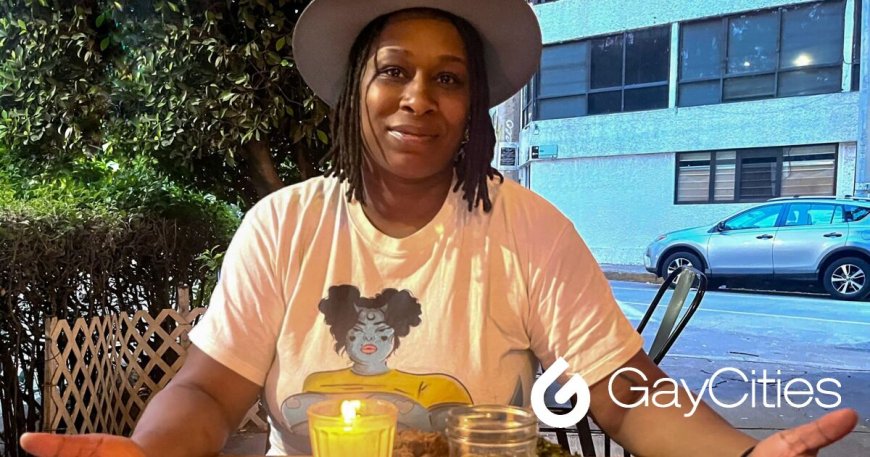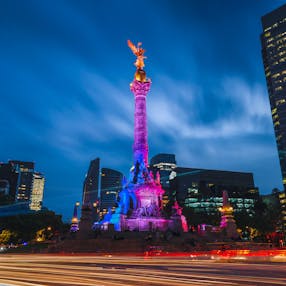Mexico City’s only soul food restaurant serves a taste of home for ex-pats & LGBTQ+ people
Mexico City's only soul food restaurant is owned by a Black queer woman who wants to fit in and stand out.


Tiara Darnell never imagined owning a restaurant. For her, food has always been an experience and a feeling, not a business.
So how did she end up owning and operating Blaxicocina, Mexico City’s only soul food restaurant? Three GayCities team members sat down with her one warm evening to find out.
Darnell tells GayCities that food has always been a family affair. “There are times when we would all get together and prepare food for the people who are coming, whether that’s family, friends, or neighbors sometimes too. It’s really amazing to open up a restaurant that’s all about food and abundance and love in a culture that loves to eat, a culture that loves to love, as all of those things bring us together. And so I thought, why not open a place like this in Mexico City?”
Pack your bags, we’re going on an adventure
Subscribe to our weekly newsletter for the best LGBTQ+ travel guides, stories, and more.
Subscribe to our Newsletter today
Mexico City is lauded as a “foodie city,” and you can find all sorts of cuisines featuring local ingredients for classic Mexican dishes. Narvarte, where Blaxicocina is located, has a plethora of places to eat, but the restaurant stands out for its mix of Mexican and American tastes.
Finding traditional ingredients has posed a small problem for her, but Darnell has used her queer creativity to her advantage. Corn is processed differently in Mexico than in the US, so finding corn meal or grits is almost impossible. So, the staff grinds their own to use in cornbread and coatings for fish or green tomatoes. While kale and other leafy greens can be found south of the border, collard greens are nowhere to be found, requiring a nimble solution.
“Collard greens aren’t widely available in Mexico City, and maybe even the whole country. But I was able to bring some seeds of different varieties of collard greens with me. I work with a farmer here locally to grow them. And so that’s another really beautiful relationship from this experience of building the restaurant,” she said.
When the Gaycities team stopped by for dinner, the two young Chilango (slang for a Mexico City resident) members were new to soul food. And when the greens hit his lips, one of the young men sighed with pure enjoyment. Each bite brought more moans. “I’ve never tasted anything like this,” he said. “It’s so damn good.”
The other was ecstatic over the mac and cheese and served with a classic Southern sweet tea (almost better than Mexican Coke!). She imports sharp cheddar cheese from the States to give it an authentic flavor.
Standing inside the restaurant and looking over the table, Darnell flashed a satisfied smile. Her new friends devoured the food and appreciated the love that had gone into making it.

“That’s been another really beautiful relationship that’s come out of this experience of building this restaurant,” she said. “It’s amazing to explain to people because there’s not even a word in Spanish that I’m aware of for collard greens. So I say, you know, you have to just try it, just try it. You’ll like it. Get them with bacon if you eat bacon; everything is better with bacon.”
But creating such an inclusive space may be Darnell’s biggest triumph — and even harder than finding collard green seeds. After all, soul food isn’t typical Mexican fare. But as a queer woman, she knows that trying to fit in is never as satisfying as bringing other people in.
“There’s a lot of shared history between Black culture from the US and Mexican culture here,” she explained. “But a lot of people don’t know about that history because it’s not taught in schools; it’s not really talked about. So I think that this is an opportunity to show that, no, we have more in common than we realize. And we can discover that together through food.”

“Being queer and owning this restaurant, I think of those two things together,” Darnell said. “I think about creating space for different communities, cultures, and people to come together. Like-minded people attract one another. So when you come here, you’re going to feel represented, whether you are from the US or Chilango, because we have like our whole staff here to bring their touches to some of the food and the experiences here.
“We’re just trying to create space. And so I think that, like across the spectrum, whatever culture you’re from, if you’re queer, this is a place for you.”

 Mark
Mark 







